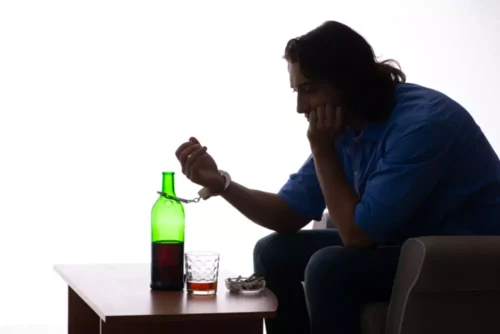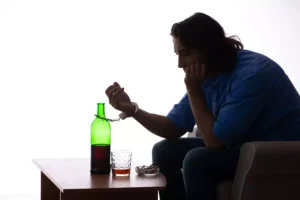
Remember, maintaining balance in life is essential, and small changes can lead to significant improvements in our overall health. It can occur during or after someone’s alcohol addiction, even in otherwise healthy people. They should seek mental health services and pursue therapy that deals with all of their conditions at once. During cognitive-behavioral therapy, a person will work with their therapist to identify the thought patterns that trigger their anxiety and alcohol use. But a person who did not previously experience brain fog may experience it during brain fog after drinking or after withdrawal. Brain fog during withdrawal does not differ substantially from brain fog during addiction.
- The link between alcohol and brain fog is also related to alcohol’s impact on mental illnesses.
- Many hangover symptoms arise due to detoxification, the physical process of ridding the body of toxic chemicals caused by alcohol consumption.
- If you have a poor metabolism and poor dietary habits like an untimely meal schedule, poor nutritional intake etc., the effects of alcohol can be longer-lasting and serious.
- Have you ever felt like you were navigating through a thick fog after a night of drinking?
- Life, specifically American life, continues to demand that we perform this dance, that we balance the mundane and the frightening without going insane.
Alcohol Brain Fog: How to Start Healing Your Brain
They can meet new people and learn stories about how to live a sober life. The symptoms of brain fog can include confusion, difficulty concentrating, and short-term memory loss. Brain fog does not have an official test so your healthcare provider could help from there. Mental health conditions such as anxiety and depression can be exacerbated by alcohol use, leading to increased cognitive difficulties.

How Are Alcohol and Brain Fog Connected?
- According to experts at alcohol addiction treatment centers, alcohol abuse is one of the most common causes of addiction.
- In fact, a deficiency in the essential nutrient thiamine resulting from chronic, heavy alcohol consumption is one of the biggest factors contributing to alcohol-induced brain damage.
- It is not a medical condition in and of itself, so a doctor cannot diagnose a patient with brain fog.
- Even though alcohol helps us fall asleep faster — thanks in large part to its depressive effect — we typically experience more sleep disturbances as the night goes on.
In addition to getting some sunlight, another great way to get rid of brain fog is to spend drug addiction time in nature. You can also try using a light therapy box that emits bright light to help improve your brain function. Processed foods are high in sugar and unhealthy fats, which can lead to inflammation and impair brain function.
What Does Brain Fog Feel Like?
- Researchers found those who use alcohol to cope with anxiety have greater chances of becoming dependent, misusing alcohol, or developing alcohol use disorder.
- Because alcohol promotes dehydration, maintaining adequate fluid levels before, during, and after drinking can mitigate some cognitive impairments.
- These challenges can cause further feelings of frustration and isolation.
- While occasional brain fog after drinking is manageable, chronic alcohol consumption can lead to longer-lasting cognitive impairments.
- These neurotransmitters play essential roles in cognition, attention, and emotional regulation.
Our commitment to high-quality, science-backed ingredients aligns with empowering individuals to take control of their health. Alongside lifestyle modifications, our supplements can be a valuable addition to your wellness routine. These symptoms can make completing everyday tasks or engaging in social situations challenging. These challenges can cause further feelings of frustration and isolation.

Is brain fog a sign of alcohol dependency?
The phenomenon known as “brain fog” is a common experience for many people after consuming alcohol, leaving them grappling with confusion, forgetfulness, and an inability to concentrate. While this sensation can be frustrating, understanding why alcohol causes brain fog is crucial for anyone aiming to improve their cognitive health and overall well-being. If an individual is experiencing severe or persistent symptoms, seeking professional help may be necessary.


Rats easily learn which lever results in the most reward, so the researchers complicated things by every few minutes switching which lever had the highest reward likelihood. To get the most reward, a rat should rapidly change its behavior every time it figures out that the reward likelihood has changed. Calls to any general helpline will be answered by treatment providers, each of which is a paid advertiser. Calls to numbers on a specific treatment center listing will be routed to that treatment center.
In this blog post, we will delve into the intricate relationship between alcohol consumption and brain fog. We will explore how alcohol affects our brain, the symptoms of alcohol-induced brain fog, and the factors that influence its duration. Additionally, we will provide tips for managing and recovering from brain fog, all while emphasizing the importance of a holistic approach to wellness. At Cymbiotika, we believe in empowering our community with science-backed supplements and lifestyle choices that support overall health. The duration of brain fog can vary widely depending on individual factors and drinking patterns. For occasional drinkers, symptoms may last a few hours to a day, while chronic heavy drinkers may experience lingering effects for several days.
